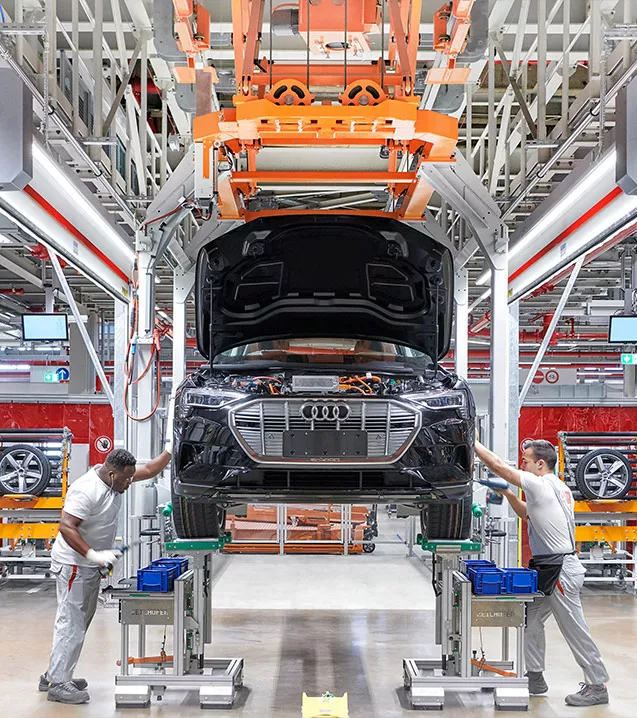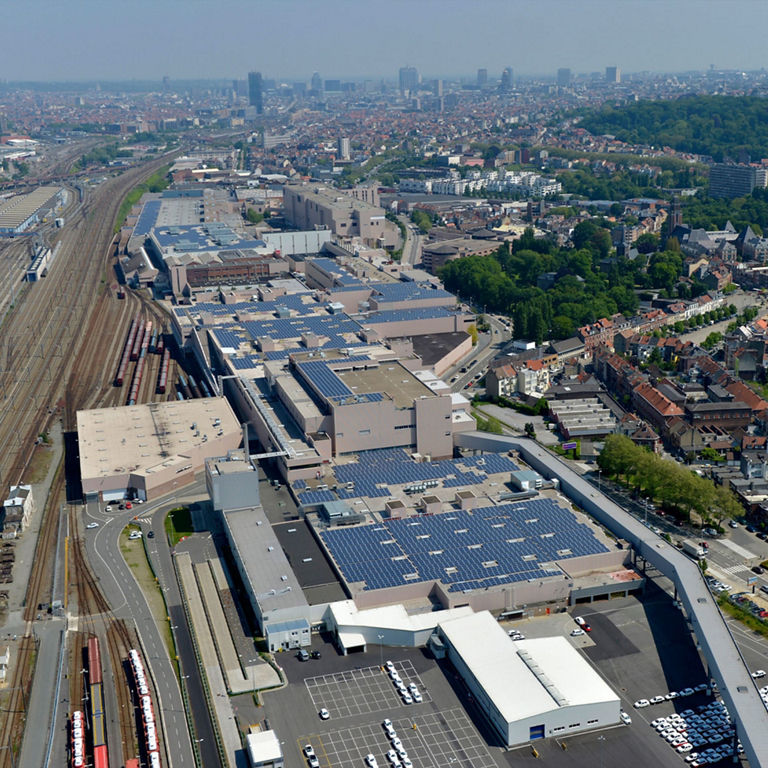The first pillar is switching to renewable electricity, which was reached in 2012. The 37,000 square meter roof hosts the largest photovoltaic system in the region, which saves around 17,000 tons of CO₂ per year, equivalent to the consumption of around 1,500 people.
The second pillar focuses on the supply of heat. Using renewable energy biogas certificates, the plant offsets up to 40,000 tons of CO₂ emissions each year.
The third pillar focuses on emissions that we are not yet able to transition to renewable energy sources. To offset this, the Audi Brussels plant focuses on environmental projects such as, reducing water consumption and waste, preventing further air pollution, and improving recycling.
In addition to being net-carbon neutral, the Audi Brussels facility has started production of the e-tron® electric lineup — furthering Audi’s drive towards a more sustainable future.

